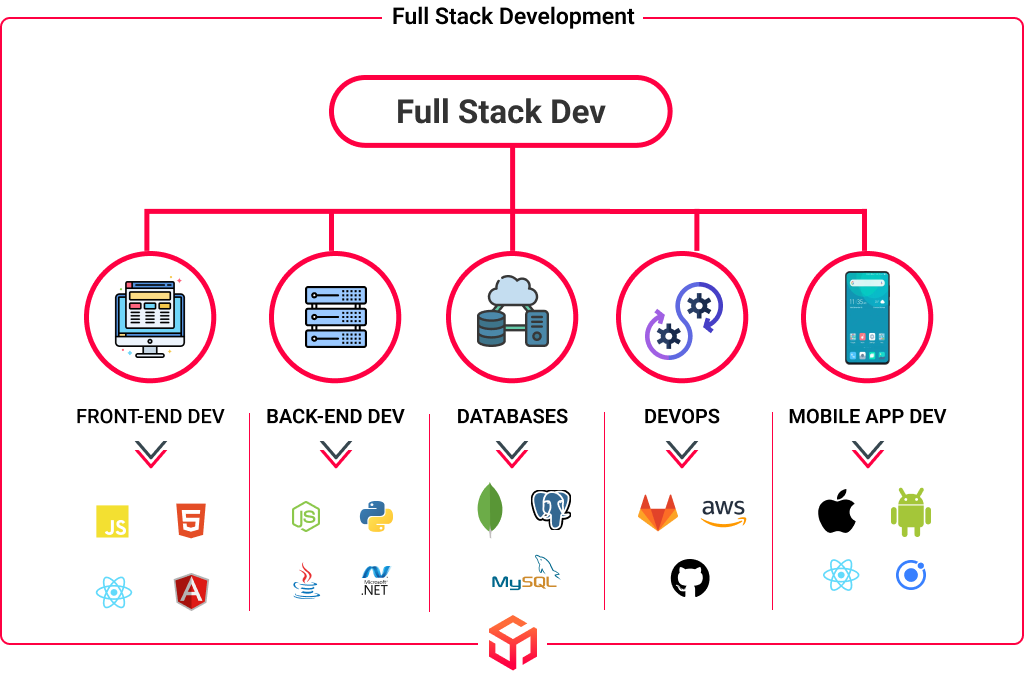News Blast: Your Daily Update
Stay informed with the latest news and trends.
Full-Stack Development: The Swiss Army Knife of Tech Skills
Unlock the secrets of full-stack development—your ultimate tech toolkit for career success and endless possibilities!
What is Full-Stack Development and Why is it Essential in Today’s Tech Landscape?
Full-stack development refers to the comprehensive skill set required to work on both the front-end and back-end portions of a web application. Front-end development focuses on the visual aspects and user experience, allowing developers to create intuitive interfaces that engage users. Back-end development, on the other hand, deals with server-side functionalities, databases, and application logic. This holistic approach enables full-stack developers to manage projects more efficiently, as they possess a deep understanding of how the different components of a web application interact.
In today's tech landscape, full-stack development is essential for several reasons. Firstly, it accelerates the development process, as teams can work more collaboratively and avoid the handoff delays that often occur between front-end and back-end developers. Secondly, full-stack developers are versatile problem solvers who can tackle various challenges that may arise during the development cycle. Lastly, with the rapid growth of technology and new frameworks, having proficient full-stack developers helps companies remain agile and adapt to changing market demands, ensuring they stay competitive.

Top 10 Skills Every Full-Stack Developer Should Master
In today's fast-evolving tech landscape, becoming a successful full-stack developer requires mastering a diverse set of skills. A full-stack developer should be proficient in both front-end and back-end technologies, allowing them to create seamless user experiences while also managing the server-side logic. The top skills every full-stack developer should focus on include:
- HTML/CSS
- JavaScript and frameworks like React or Angular
- Back-end programming languages such as Node.js, Python, or Ruby
- Database management (SQL and NoSQL)
- Version control systems, particularly Git
In addition to the technical proficiencies, there are several soft skills that are equally important for full-stack developers. Communication and collaboration skills are vital since developers often work as part of a team. Problem-solving abilities are crucial as well, as developers must navigate various challenges throughout the project lifecycle. Furthermore, understanding basic UI/UX principles can significantly enhance a developer's ability to create more effective and user-friendly applications. Mastering these skills not only helps in becoming a well-rounded full-stack developer but also opens doors to numerous career opportunities in the tech industry.
How Full-Stack Development Can Enhance Your Career Prospects
Full-stack development has emerged as a critical skill set in today's tech-driven job market. By mastering both front-end and back-end technologies, developers gain a comprehensive understanding of how web applications are built and maintained. This versatility allows them to work on diverse projects, making them more valuable to employers. Additionally, as businesses increasingly seek professionals who can manage multiple aspects of development, full-stack developers often find themselves with enhanced job security and a broader range of career opportunities. Companies are willing to pay a premium for talented individuals who can seamlessly navigate between different layers of software development.
Furthermore, having full-stack development skills can lead to accelerated career growth. According to industry trends, full-stack developers are not only in high demand but also tend to command higher salaries compared to their specialized counterparts. They are often seen as more adaptable team players who can collaborate effectively with both front-end and back-end engineers. This dynamic capability can lead to leadership roles such as project manager or technical lead, as organizations appreciate team members who can bridge gaps and facilitate communication across departments. Hence, investing in full-stack development can significantly enhance your career prospects in the tech industry.